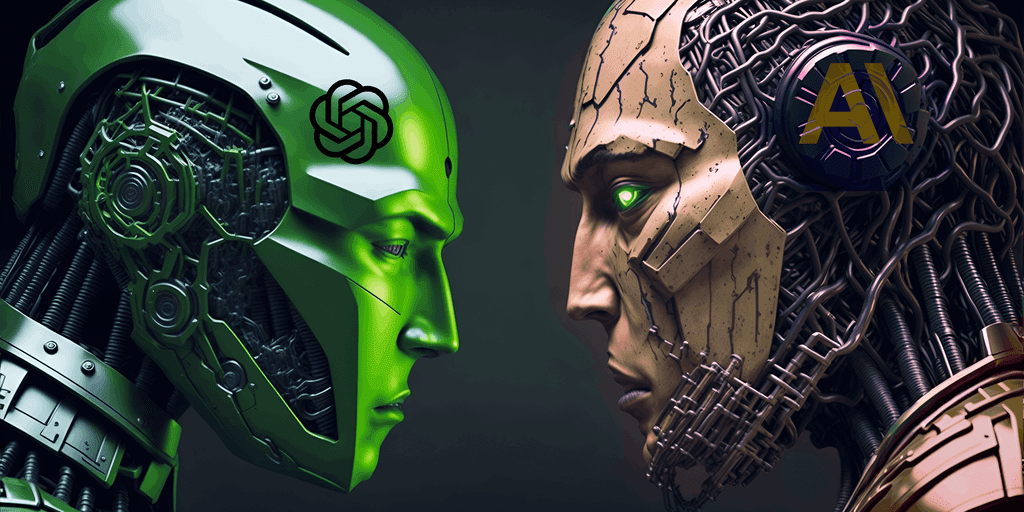This week, Claude unveiled its “premium” service, Claude Pro, a version of its Claude 2 chatbot aimed at power users. At a monthly fee of $20, Claude Pro emerges as a direct competitor to OpenAI’s ChatGPT Plus service.
ChatGPT currently stands as the world’s most popular AI chatbot, boasting over a million users within a week of its launch, but dynamics might shift when it comes to premium services, as users find themselves weighing options and evaluating the long-term value of the subscription.
Both Claude and ChatGPT are powerful tools, but their paid versions cater to vastly different needs. So, which one is the best fit for you? We delve into some comparisons to help you make an informed decision.
Context is Everything
A fundamental difference lies in the core of both models and their information processing capabilities. In the realm of Large Language Models (LLMs), this capability is measured in tokens, the smallest unit of information handled by a model. For instance, “cat” is one token long —[9246]—, whereas “snake” comprises two tokens [token id 16184 for “sn”, and token id 539 for “ake,”]. You can measure and identify the tokens of your prompt with OpenAI’s tokenizer.
Claude Pro, based on the Claude 2 LLM, can process up to 100K tokens of information, while ChatGPT Plus, powered by the GPT-4 LLM, handles 8,192 tokens. For the elite (and lucky) users, a version of GPT-4 supports 32K tokens, but it’s invite-only and accessible through OpenAI’s playground, where users pay per token used.
In terms of context, Claude Pro clearly takes the lead. If you require extensive iterations or need to provide a substantial background to achieve satisfactory results, Claude Pro holds a distinct advantage here.
Hallucinations Are a No No
Another more subjective aspect is the accuracy of the information. While Decrypt couldn’t find standardized tests, our personal experience indicates that Claude tends to “hallucinate” more often than ChatGPT.
This increases the risk associated with using the chatbot, turning its contextual ability into a double-edged sword. If users input a large amount of unfamiliar information, the output might seem very credible—but actually be laden with factual and contextual errors.
In other words, Claude’s final results need more refinement compared to ChatGPT. Based on our personal experience, ChatGPT emerges as a clear winner in this regard.
Updated Informations Matter
Next, we consider how up-to-date each model is. ChatGPT trained its GPT-4 model with data as recent as 2021, whereas Anthropic updated Claude 2 with information through early 2023.
Therefore, if you’re contemplating a discourse on contemporary topics like politics, sports records, or medical discoveries, Claude might be your go-to option.
Unfortunately, ChatGPT lost its edge when it discontinued its internet connectivity feature via Bing, reverting to its outdated model. Hence, Claude wins this round.
The Plus Factor: Customizability
Additional functionality and customizability are another critical factor to consider. This could be a make-or-break thing for many users and have as much weight as the context capability. What’s more—when it comes to this topic, the difference between the AI chatbots is night and day.
Currently, Claude Pro doesn’t offer any additional features. What you see is what you get: The same model available through its free tier, but with higher bandwidth during peak hours and early access to future developments.
On the other hand, OpenAI has launched a suite of products that enhance ChatGPT’s capabilities significantly. ChatGPT Plus users have access to a feature that allows the use of programming language for complex developments. Initially dubbed “Code Interpreter,” it is now known as “Advanced Data Analysis.” This feature proves extremely useful in various scenarios, from creating charts with Excel data to designing a game, finding bugs in a program, and offering solutions.
Furthermore, ChatGPT Plus offers a plugin store that connects the model to the internet through third-party tools, optimizing results to the fullest. Thanks to this plugin store, ChatGPT can design logos and explanatory videos for internet articles, analyze PDFs, create MidJourney prompts, conduct SEO audits, analyze investment portfolios, and even simplify life for cryptocurrency enthusiasts.
With nearly 1,000 plugins currently available and more being added as AI adoption grows, ChatGPT is the clear winner in this category.
The World is Big: How Each Model Serves International Users?
Besides functionality, territorial availability is also a thing to consider.
ChatGPT Plus is accessible in over 140 countries, while Claude Pro is limited to users in the US and UK. While VPNs are an option, we must note that OpenAI tends to block VPN requests, whereas Claude has shown more lenient policies in this regard.
For international users, ChatGPT is available in over 80 languages, whereas Claude Pro supports significantly fewer. It recognizes the most common languages (English, Spanish, Portuguese, German, etc.), but the list is more restricted.
In this aspect, ChatGPT Plus is the clear victor.
Non-verbal abilities
As Decrypt previously noted, Claude can provide very detailed answers to problems requiring logical skills when compared against ChatGPT and even Google’s Bard.
Although there were errors, its responses were of higher quality than the other LLMs However, the tables turn when ChatGPT Plus users employ the advanced data analysis tool or some specialized plugins. In these cases, the responses tend to be considerably better, surpassing any chatbot on the market in efficacy.
With the additional functionalities offered, ChatGPT Plus wins this round.
Conclusion
Overall, ChatGPT Plus appears to be the superior choice for users seeking a powerful chatbot for interaction or work.
However, Claude Pro has a significant advantage that might be a game-changer for some users, especially in the professional sphere.
If your creative work involves long contextual inputs, Claude Pro will handle your instructions with ease, while ChatGPT Plus might falter, shut down, or start “hallucinating.”
Ultimately, the choice depends on your specific user profile.




